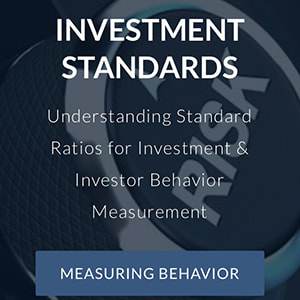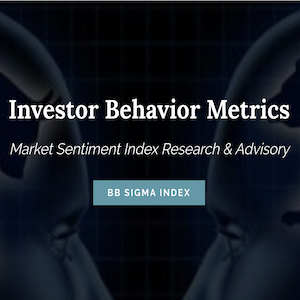The financial industry’s growth can only be sustainable by adding measurable value when serving investors.
For institutions: Here is your unbiased resource to design and develop truly intelligent advisory products and differentiate your offerings to stay ahead of the competition.
For investors: Here is your knowledge base to find out the truth about popular "intelligent" products to help you select the best service for your long-term investment success.
Background:
- In 2019, the founder of AFIEA, Dr. Charlie Q. Yang, published his career story on LinkedIn that exposed shocking behaviors inside the financial industry. More consumers are now learning to see through the hype of Wall Street and how to protect themselves. With the rapid advances in artificial intelligence and machine learning, more companies apply technology to improve financial services.
- Unfortunately, most intelligent advisory offerings from large Wall Street firms attracted $billions of investor assets through marketing tricks by labeling their advisory products and services as "intelligent." The reality of these Robo-advisors proved to have only generated poor performance against the standard benchmarks because of the complete lack of intelligent design and market-tested track records.
- The SEC's Risk Alert in 2021 warned about widespread compliance issues among advisers providing robo-advisory services, as well as with those who offered discretionary investment advisory programs.
- In the future, the emerging Robo-advisor industry will be here to stay and grow. To learn the top 10 drivers to the rapid growth of the Robo-advisory market and improve Robo-advisors with intelligent FinTech solutions, please reach out or email us.
|
- We are focusing on AI-powered financial advisory such as AI-managed funds and intelligently designed robo-advisors. They utilize AI technology to select the individual securities to be held in the fund.
- We are not reviewing investments or companies involved in products or services related to artificial intelligence. There are plenty of focused AI ETFs and funds that typically invest mainly in AI stocks.
Important Remarks: Since their introduction in 1993, exchange-traded funds (ETFs) have exploded in popularity with investors looking for alternatives to mutual funds. ETFs can typically offer low operating costs, easier diversification, flexible trading, greater transparency, zero-trade commission, and better tax efficiency in taxable accounts. Please be aware that the size of an ETF does matter because smaller ETFs are prone to large bid-ask trading spreads, higher fees, and less liquidity.












